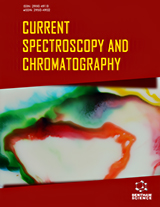Abstract
Anti-diuretic peptides are widely used for the control of body water balance. With the growing concerns on their pharmacological characteristics and clinical safety, there is an increasing request of sensitive, selective and robust analytical assays for the determination of anti-diuretics in biological samples. This article provides a perspective review of various methodologies developed and validated in the past, including immunoassay (IA), high performance liquid chromatography (HPLC) and capillary electrophoresis (CE), with detections of radio, UV, fluorescence and mass spectrometry. Systematic description of each technique was given and emphasis was laid on the problems encountered with each assay. Despite the infrequent application of mass spectrometry in anti-diuretics quantitative analysis, it was highlighted here for its remarkable sensitivity and selectivity. The ultimate aim of this review is to demonstrate the analytical options of peptide determination and promote the quantification of peptide-like drugs and biomarkers in respect to fast-expanding peptide market and therapeutics.
Keywords: Anti-diuretic Peptides, Analytical Methods, Biological Samples, Robust, Anti-diuretic, Immunoassay, HPLC, Flourescence, Hyponatremia, Capiller Electrophoresis, Mass Spectrometry, Anti-diuretic Peptide
Current Analytical Chemistry
Title: Analytical Methods for the Determination of Anti-diuretic Peptides in Biological Samples: Challenges and Perspectives
Volume: 7 Issue: 2
Author(s): Yun Chen and Yuan Liu
Affiliation:
Keywords: Anti-diuretic Peptides, Analytical Methods, Biological Samples, Robust, Anti-diuretic, Immunoassay, HPLC, Flourescence, Hyponatremia, Capiller Electrophoresis, Mass Spectrometry, Anti-diuretic Peptide
Abstract: Anti-diuretic peptides are widely used for the control of body water balance. With the growing concerns on their pharmacological characteristics and clinical safety, there is an increasing request of sensitive, selective and robust analytical assays for the determination of anti-diuretics in biological samples. This article provides a perspective review of various methodologies developed and validated in the past, including immunoassay (IA), high performance liquid chromatography (HPLC) and capillary electrophoresis (CE), with detections of radio, UV, fluorescence and mass spectrometry. Systematic description of each technique was given and emphasis was laid on the problems encountered with each assay. Despite the infrequent application of mass spectrometry in anti-diuretics quantitative analysis, it was highlighted here for its remarkable sensitivity and selectivity. The ultimate aim of this review is to demonstrate the analytical options of peptide determination and promote the quantification of peptide-like drugs and biomarkers in respect to fast-expanding peptide market and therapeutics.
Export Options
About this article
Cite this article as:
Chen Yun and Liu Yuan, Analytical Methods for the Determination of Anti-diuretic Peptides in Biological Samples: Challenges and Perspectives, Current Analytical Chemistry 2011; 7 (2) . https://dx.doi.org/10.2174/157341111794815048
| DOI https://dx.doi.org/10.2174/157341111794815048 |
Print ISSN 1573-4110 |
| Publisher Name Bentham Science Publisher |
Online ISSN 1875-6727 |
 10
10
- Author Guidelines
- Graphical Abstracts
- Fabricating and Stating False Information
- Research Misconduct
- Post Publication Discussions and Corrections
- Publishing Ethics and Rectitude
- Increase Visibility of Your Article
- Archiving Policies
- Peer Review Workflow
- Order Your Article Before Print
- Promote Your Article
- Manuscript Transfer Facility
- Editorial Policies
- Allegations from Whistleblowers
- Announcements
Related Articles
-
Metal Complexes with Aromatic N-Containing Ligands as Potential Agents in Cancer Treatment
Current Medicinal Chemistry - Anti-Cancer Agents Targeting Indoleamine 2,3-dioxygenase (IDO) to Counteract Tumour- Induced ImmuneDysfunction: From Biochemistry to Clinical Development
Endocrine, Metabolic & Immune Disorders - Drug Targets Fibroblast Growth Factors, Fibroblast Growth Factor Receptors, Diseases, and Drugs
Recent Patents on Cardiovascular Drug Discovery Radiolabelled Probes Targeting Tumor Hypoxia for Personalized Medicine
Current Pharmaceutical Design The X-ray Crystallographic Structure of Human EAT2 (SH2D1B)
Protein & Peptide Letters The Interplay Between Inflammation and Oxidative Stress in Carcinogenesis
Current Molecular Medicine Developments of DNA-dependent Protein Kinase Inhibitors as Anticancer Agents
Mini-Reviews in Medicinal Chemistry Importance of Influx and Efflux Systems and Xenobiotic Metabolizing Enzymes in Intratumoral Disposition of Anticancer Agents
Current Cancer Drug Targets Interleukin-26, a Highly Cationic T-Cell Cytokine Targeting Epithelial Cells
Anti-Inflammatory & Anti-Allergy Agents in Medicinal Chemistry Mesenchymal Stem Cells: Use in Cartilage Repair
Current Rheumatology Reviews Preventive and Therapeutic Effects of the Retinoid X Receptor Agonist Bexarotene on Tumors
Current Drug Metabolism Negative Regulation of NEDD8 Conjugation Pathway by Novel Molecules and Agents for Anticancer Therapy
Current Pharmaceutical Design Recent Advances in Diagnostic and Therapeutic Approaches for Breast Cancer: A Comprehensive Review
Current Pharmaceutical Design Role of mTOR in Hematological Malignancies
Current Cancer Therapy Reviews Malignancy in Common Variable Immune Deficiency: Report of Two Rare Cases of Gastrointestinal Malignancy and a Review of the Literature
Cardiovascular & Hematological Disorders-Drug Targets Structure and Functional Relationships of Hsp90
Current Cancer Drug Targets Meet Our Editorial Board Member
Recent Patents on Anti-Cancer Drug Discovery Stent-Based Delivered Anti-Proliferative Drugs in the Prevention of Coronary Stent Restenosis
Current Medicinal Chemistry - Cardiovascular & Hematological Agents Preparation of Enzymatically Highly Active Pegylated-D-Amino Acid Oxidase and Its Application to Antitumor Therapy
Current Drug Delivery Flavonoids as Anticancer Agents: Structure-Activity Relationship Study
Current Medicinal Chemistry - Anti-Cancer Agents


























